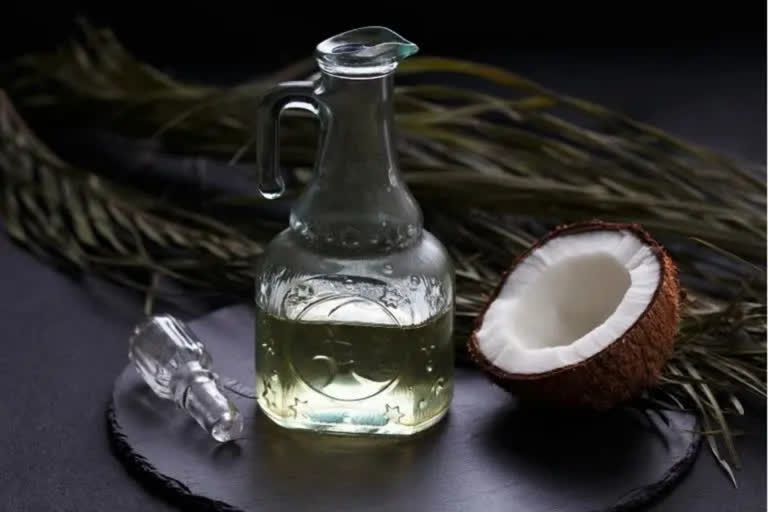Hyderabad: Oil pulling, or using oil as a mouthwash, is considered a very beneficial practice for oral health because this purification process naturally removes harmful bacteria from the mouth. In Ayurveda, many types of purification activities are used like Panchakarma to remove harmful elements from the body. One such activity is oil pulling, which is considered useful for the purification of the mouth, that is, to make the mouth germ-free. Ayurveda believes that oil pulling naturally helps a lot in maintaining the overall health of the mouth including teeth and gums.
Dr. Sunil Shastri, a doctor from Ayurveda School, Haridwar (Uttarakhand), says that this is a very old method, which is also mentioned in 'Charak Samhita'. In Ayurveda, mainly two activities of oil pulling are prevalent, 'Kaval Dharan' and 'Gandush' or 'Gandusha'. Both Kaval Dharan and Gandusha procedures are considered very beneficial for the mouth. Both the procedures are almost the same, the only difference between these two is that in Gandusha oil is filled in the mouth and left for a few minutes. It is not stirred in the mouth, and then it is taken out, and in Kaval Dharan, oil is filled in the mouth and rinsed with it for a few minutes.
He explains that morning is considered the most ideal time to perform both these activities. By doing oil pulling on an empty stomach in the morning, the germs present in the mouth get cleaned. By doing this process properly, not just the health of teeth and gums is maintained, but problems like cavities, yellowing of teeth and pyorrhea are prevented, the shine of teeth remains, the problem of bad breath is reduced, and the problem of sore throat is reduced. Infections and nose-ear problems are prevented, and facial glow increases.
Also read: Music therapies bring down discomfort, anxiety in cancer patients: Study
Apart from this, oil pulling also prevents digestive problems. Whatever we eat or drink first enters our body through our mouth. In such situations, due to not cleaning the mouth properly, the food gets stuck in the teeth or the edges of the mouth, which starts rotting with time, and when there is any disease or any other problem in the mouth, harmful bacteria that cause diseases in the mouth start to grow. This sometimes also causes the loss or deficiency of good bacteria already present in the mouth which increases the risk of diseases like rotting of teeth and gums, pain, bad smell in the mouth and problems related to saliva in the mouth.
Apart from this, when the food passes through the mouth, harmful bacteria also enter the body along with it, which can cause many other problems in the body. That is why it is always advised to keep the mouth clean and healthy. Oil pulling is very useful because when the oil gets rinsed in this process, then along with the oil, the harmful bacteria and germs present in the mouth also come out of the mouth and the mouth gets cleaned properly.
Dr. Sunil Shastri explains that oil pulling must be done in the right way and after having information of all the precautions, such as the rinse should be done with the right and fresh oil, the oil should not enter the stomach while or after the rinse, etc. He explains that though coconut oil and sesame oil are considered ideal for oil pulling, but olive oil, sunflower oil or any edible oil can be used for this.
Explaining the right way of oil pulling, he says that in Kaval Dharan, one should rinse with a tablespoon of oil for 15 to 20 minutes in the same way as we do with water after brushing. When the oil in the mouth becomes thin and light white after rinsing, it should be taken out of the mouth.
On the other hand, filling oil in the mouth in Gandusha should be left for 5-10 minutes without moving the mouth. After that, the oil should be taken out of the mouth. After both procedures, rinse your mouth thoroughly with lukewarm water. He explains that pure and fresh oil should always be used for oil pulling. Apart from this, small children and people who are allergic to oils or have any disease in the mouth, should not do oil pulling.



